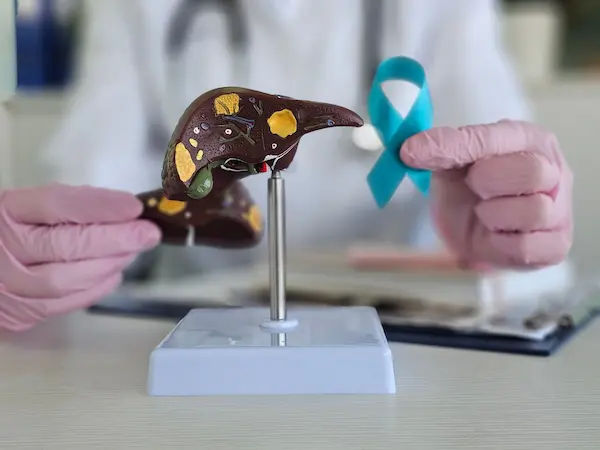What Is Alcohol Poisoning? Everything You Need to Know
Learn about alcohol poisoning, its causes, symptoms, risks, and treatment. Understand how excessive drinking can be life-threatening and what steps to take in an emergency.

Written by
Last updated on 3rd Jul, 2025
Introduction
Alcohol poisoning is a serious and potentially life-threatening condition that occurs when a person consumes a dangerous amount of alcohol in a short period. While moderate alcohol consumption is generally safe for most adults, excessive drinking can overwhelm the body’s ability to process alcohol, leading to severe consequences. This article aims to educate you on what alcohol poisoning is, how it happens, its signs and symptoms, the risks involved, and how to prevent and treat it. Understanding this condition can help save lives and reduce the harm caused by excessive drinking.
What Is Alcohol Poisoning?
Alcohol poisoning, also known as binge drinking intoxication or acute alcohol toxicity, happens when a person drinks an excessive amount of alcohol in a short time frame, typically in one sitting. Alcohol is a depressant, which means it slows down the body’s functions. When consumed in large quantities, alcohol can impair the brain’s ability to control vital functions such as breathing, heart rate, body temperature, and consciousness.
The body processes alcohol at a steady rate of about one standard drink per hour. However, when alcohol is consumed faster than the liver can process it, the blood alcohol concentration (BAC) rises to dangerous levels, leading to alcohol poisoning. This condition can be fatal if not recognised and treated promptly.
Causes of Alcohol Poisoning
The primary cause of alcohol poisoning is the excessive consumption of alcohol in a short period. Some factors that contribute to the risk of alcohol poisoning include:
Binge Drinking: Drinking large amounts of alcohol within a short time (defined as five or more drinks for men and four or more drinks for women in about two hours) is a significant risk factor. Binge drinking often leads to a rapid increase in blood alcohol content (BAC) levels.
Drinking on an Empty Stomach: Consuming alcohol without food in the stomach allows alcohol to be absorbed more quickly into the bloodstream, increasing the risk of alcohol poisoning.
Alcohol Content: The concentration of alcohol in certain drinks varies. Spirits like vodka, whiskey, and rum have a much higher alcohol content than beer or wine, making it easier to consume dangerous amounts quickly.
Tolerance Levels: People with a higher tolerance to alcohol may drink more before feeling intoxicated, which can increase the risk of alcohol poisoning. However, tolerance does not protect the body from alcohol’s harmful effects.
Underage Drinking: Younger individuals, particularly teenagers, are at higher risk due to limited experience with alcohol and often poorer judgment when it comes to drinking.
Health Conditions and Medications: Pre-existing medical conditions, such as liver disease, diabetes or medications that interact negatively with alcohol, can increase the likelihood of alcohol poisoning.
Symptoms of Alcohol Poisoning
Recognising the signs of alcohol poisoning early is critical for getting timely medical help. The symptoms may vary in severity depending on how much alcohol has been consumed and how quickly it was absorbed into the bloodstream.
Mild to Moderate Symptoms:
Confusion or stupor
Slurred speech
Vomiting or nausea
Loss of coordination or balance
Slow or irregular breathing (fewer than eight breaths per minute)
Hypothermia (low body temperature) or chills
Seizures
Dehydration, dizziness, or fainting
Unconsciousness or inability to wake up
Severe Symptoms:
Difficulty breathing (gasping for air)
Unresponsiveness or inability to stay awake
Cold, clammy skin
Bluish or pale skin colour, especially around the lips or fingertips
Hypoglycemia (low blood sugar), leading to seizures
Irregular heart rate or rhythm
Severe confusion or disorientation
Coma
Consult Top Doctors for Your Symptoms
Risks and Complications of Alcohol Poisoning
Alcohol poisoning can result in several dangerous and potentially fatal complications if not addressed quickly. Some of these include:
Respiratory Depression: Alcohol can depress the central nervous system, which controls breathing. If breathing becomes slow or stops altogether, it can result in a lack of oxygen, leading to brain damage or even death.
Hypothermia: As alcohol is a vasodilator (it expands blood vessels), excessive alcohol consumption can cause a rapid loss of body heat. This may lead to hypothermia, which is characterised by dangerously low body temperature.
Dehydration and Electrolyte Imbalance: Alcohol is a diuretic, meaning it causes increased urination, leading to dehydration. Dehydration can worsen other symptoms and increase the risk of complications like seizures.
Seizures: Low blood sugar, as a result of alcohol consumption, can trigger seizures, which can cause further damage to the brain and other organs.
Choking or Aspiration: Vomiting is a common symptom of alcohol poisoning. If the person vomits while unconscious or semi-conscious, there is a risk of choking on vomit, leading to suffocation.
Cardiac Arrest: In severe cases, alcohol poisoning can lead to a fatal heart rhythm disturbance (arrhythmia), which may result in cardiac arrest.
Brain Damage: Prolonged alcohol poisoning can cause irreversible brain damage due to a lack of oxygen and nutrient supply to the brain cells.
Preventing Alcohol Poisoning
While alcohol poisoning can be severe, there are steps you can take to prevent it. Here are some practical tips to reduce the risk of alcohol poisoning:
Drink in Moderation: The best way to prevent alcohol poisoning is to avoid excessive drinking. Stick to the recommended limits of up to one drink per day for women and two drinks per day for men. One standard drink equals approximately 14 grams of pure alcohol, which is the amount in a 350 ml beer, a 15 ml glass of wine, or 45 ml of distilled spirits.
Eat Before and While Drinking: Eating before and while drinking slows down the absorption of alcohol into your bloodstream. It can help prevent rapid intoxication.
Pace Yourself: Drink slowly to give your body time to metabolise the alcohol. Avoid binge drinking or consuming large quantities of alcohol in a short time frame.
Stay Hydrated: Alcohol is a diuretic, so make sure to drink plenty of water throughout the evening to stay hydrated. Consider alternating alcoholic drinks with water or non-alcoholic beverages.
Know Your Limits: Everyone has different tolerance levels to alcohol. Be aware of how much alcohol you can handle, and avoid drinking beyond that.
Don’t Drink Alone: Always drink in a safe environment with people you trust. If you're feeling unwell, they can help monitor you and get medical assistance if needed.
Avoid Drinking Games: Drinking games often encourage rapid and excessive drinking, which increases the risk of alcohol poisoning.
Educate Others: If you notice someone engaging in risky drinking behaviours, gently encourage them to drink less and be more mindful of their limits.
What to Do If You Suspect Alcohol Poisoning?
If you believe someone may be experiencing alcohol poisoning, it’s important to act quickly. Here’s what you should do:
Call Emergency Services: If the person is unconscious, semi-conscious, or showing signs of severe alcohol poisoning, call for medical help immediately. Do not wait for the symptoms to worsen.
Stay with the Person: Keep a close eye on the person until help arrives. Monitor their breathing, heart rate, and consciousness level.
Do Not Leave Them Alone: Do not leave the person alone or let them “sleep it off.” They may stop breathing, choke, or experience other complications.
Position Them on Their Side: If the person is unconscious but breathing, gently roll them onto their side to prevent choking in case they vomit.
Do Not Induce Vomiting: Avoid trying to make the person vomit or give them coffee, as these actions can worsen the situation.
Conclusion
Alcohol poisoning is a preventable condition, but it requires awareness, responsibility, and quick action. By understanding its causes, symptoms, and potential risks, you can help protect yourself and others from harm. If you or someone you know shows signs of alcohol poisoning, don’t hesitate to seek medical help immediately. Early intervention can be the difference between life and death.
By drinking in moderation, recognising the signs of alcohol poisoning, and taking steps to prevent excessive drinking, you can ensure a safer, healthier relationship with alcohol. Your health and safety should always come first—drink responsibly and seek help when needed.
Consult Top Doctors for Your Symptoms

Dr Summaiya Banu
General Practitioner
8 Years • MBBS
Hyderabad
Apollo 24|7 Clinic, Hyderabad
(150+ Patients)

Dr. Shaik Abdul Kalam
General Practitioner
3 Years • MD (Physician)
Visakhapatnam
Apollo 24|7 Clinic - Andhra Pradesh, Visakhapatnam
(100+ Patients)

Dr. Hrishikesh Shivakumar
General Physician/ Internal Medicine Specialist
9 Years • MBBS, MD
Bangalore
Apollo 24|7 Clinic - Karnataka, Bangalore

Dr. Liritha C
General Physician/ Internal Medicine Specialist
5 Years • MBBS, MD (GENERAL MEDICINE)
Hyderabad
Apollo 24|7 Clinic, Hyderabad

Dr. Rohinipriyanka Reddy
General Practitioner
9 Years • MBBS
Hyderabad
Apollo 24|7 Clinic, Hyderabad

